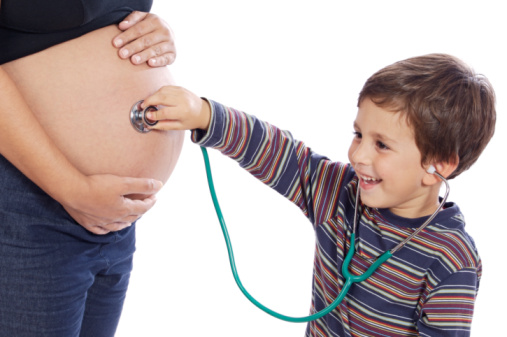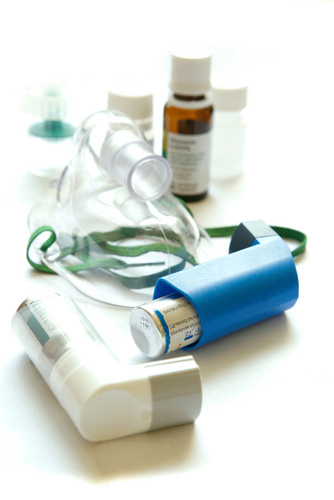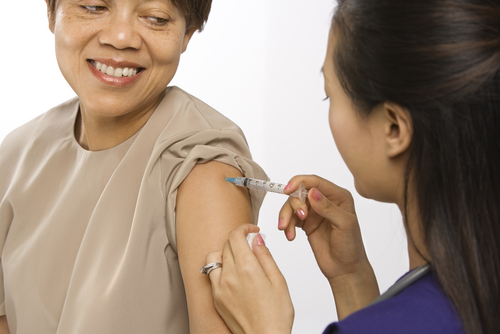NURSE-LED EMERGENCY CLINIC
This is run each morning by Sister Hodson. She is able to see adults and children over one year old with an array of medical problems ranging from the common cold to chest infections, sore throats and ear ache. She can also see patients for advice on general health as well as regarding some women’s health issues. 
ANTE-NATAL CLINIC
This is run by the Doctors and Community Midwives. The booking clinic is held on Thursday afternoons and follow-ups on Monday afternoons and Friday mornings.
POST-NATAL CLINIC
The post-natal check is done by appointment with your Doctor.
FLU VACCINATION CLINIC
These are held from September to November every year. All patients over 65 years of age are entitled to a flu vaccine, as well as those patients with certain medical conditions such as heart disease and asthma. If you are entitled to a flu vaccine you should receive a letter from the Practice inviting you to attend for an appointment.
MINOR SURGERY
All the doctors are authorised to carry out minor surgical procedures at the Health Centre. These include the removal of lumps and bumps, joint injections, cryotherapy (freezing) for wart removal and insertion of HRT implants. Please ask your doctor for details.
DIABETIC CLINIC
This is held on Monday's from 2.00pm onwards by appointment. The clinics are run by Dr McDermott and Dr Sandhu in conjunction with our Practice Nurse.
ASTHMA CLINIC
These are held by our Practice Nurse by appointment. Appointments can also be arranged with our Practice Nurses at other times during normal surgery hours.
CHILD HEALTH SURVEILLANCE
This clinic is held every Thursday morning to monitor developmental progress of all pre-school children. It is run by Dr Barendt, Dr Bell and the Health Visitors jointly. Appointments are sent out by Cheshire Health Agency.
CHILD IMMUNISATION CLINICS
These are held every Thursday morning.
The immunisations are done by the Health Visitors. Appointments are sent out by Cheshire Health Agency but you may bring your child to any immunisation clinic if they are falling behind schedules or to surgery by appointment.
We would like to stress the importance of having your child immunised.
ADULT OR TRAVEL IMMUNISATION
If you intend to go abroad on holiday or business you may need the protection of travel immunisations and malaria tablets. Please see the Practice Nurse by appointment, two months before departure if possible.

OVER 75's CHECK-UP
Those patients aged over 75 who have not seen a doctor or nurse for more than twelve months are entitled to a check-up performed by a trained health care professional. Please ask at Reception to arrange an appointment.
HEALTH SCREENING
Prevention is better than cure. Screening is the way of detecting the earliest signs of an illness before it can damage your health.
If you want a check-up then please make an appointment for a Well Person Check where our Nurses can advise you on diet, alcohol, smoking, heart disease, prevention, cervical smears and HRT.
FAMILY PLANNING
A full range of services is provided by the doctors including the fitting of diaphragms and emergency contraception.
NEW PATIENT MEDICAL
When you joint the Practice please complete the new patient questionnaire and book for a medical check-up with our Practice Nurse.
SAFEGUARDING
Safeguarding at Tower House Practice
What is safeguarding?
Safeguarding simply means keeping people safe from harm. It is about protecting children and adults from abuse or neglect. There are many different types of abuse.
Types of abuse that children can suffer include:
- physical abuse
- sexual abuse
- neglect
- emotional abuse
- domestic abuse
- bullying and cyberbullying
- child sexual exploitation
- child trafficking
- criminal exploitation and gangs
- female genital mutilation
- grooming
For more information on these types of abuse and how you can spot them, visit:
Types of abuse that adults can suffer include:
- physical abuse
- sexual abuse
- domestic abuse
- psychological or emotional abuse
- financial or material abuse
- modern slavery
- discriminatory abuse
- organisational or institutional abuse
- neglect
- self-neglect
For more information on these types of abuse, you can visit:
- Social Care Institute of Excellence:
https://www.scie.org.uk/safeguarding/adults/introduction/types-and-indicators-of-abuse
Who is responsible for safeguarding?
Safeguarding is everyone’s responsibility. Here at Tower House Practice all staff members play a role in safeguarding. Safeguarding is not just something we choose to do, it is also something we are required by law to do.
At Tower House Practice the Safeguarding Lead is Dr Barendt and the Deputy Safeguarding Lead is Sister Louise Shea.
How does Tower House Practice safeguard children and adults who are, or who might be, experiencing abuse or neglect?
Keeping children and adults safe from abuse and neglect cannot be done by one person or one agency. At the heart of any safeguarding process is the child or adult who may be suffering abuse. We work in partnership with our patients who are, or who are at risk of, experiencing abuse as well as their families and advocates as appropriate.
We work closely with our health colleagues such as health visitors, the school nursing team, midwives, paediatricians, mental health teams and other hospital colleagues. We also work with our partner agencies locally such as child and adult social care, education and the police to ensure any child or adult suffering abuse can be supported and protected and any concerns about abuse can be properly investigated.
To find out more about how agencies work together in Cheshire to keep children and adults safe visit:
Halton Safeguarding Adults Board: https://adult.haltonsafeguarding.co.uk
Safeguarding Training
All staff at Tower House Practice have the appropriate levels of safeguarding training for their job role. Safeguarding training standards are set nationally for all healthcare professionals and we follow this national guidance. Safeguarding training is essential to ensure all staff are able to spot signs of abuse or neglect and take action. We work hard to make safeguarding a key priority for our practice and our patients.
What will happen if a GP or any member of staff at the practice is worried that a child or adult is being abused or neglected?
All staff in the practice have a duty and responsibility to speak up and say something if they are worried a child or adult might be being abused or neglected. If any staff member has concerns they will discuss this with the practice Safeguarding Lead or with one of the other GPs who will decide what needs to happen next.
If a doctor is concerned that a child or young person is at risk of abuse or neglect, they must take steps to make sure the child or young person is protected. It can be very upsetting and stressful for families when this happens and parents often have questions about what their doctor may or may not do.
This leaflet from the General Medical Council (GMC) helps to answer those questions:
https://www.gmc-uk.org/-/media/documents/what-to-expect-if-your-doctor-is-worried-about-your-child-s-safety-78085189.pdf?la=en
If a doctor is concerned that an adult is at risk of abuse or neglect, they will
- Ask the person if they require any immediate support to keep themselves safe
- Explain how safeguarding works
- Ask the person what they would like to happen
- Support the person in a way to give them choice and control to improve their quality of life, wellbeing, and safety.
To do this the doctor will:
- Listen to the person
- Understand their views and wishes
- Take them seriously
- Treat them with respect
- Support them to feel as safe as they want
- Support them to make their own decisions
- Keep them informed and involved
- Tell the person what will happen next.
Capacity
When making decisions about what action is necessary to safeguard an adult, healthcare professionals have to consider whether the person has capacity to understand their situation and make decisions about what should happen to them.
What is capacity?
- Capacity means the ability to use and understand information to make a decision, and communicate any decision made.
- A person lacks capacity if their mind is impaired or disturbed in some way, which means they're unable to make a decision at that time.
For more information on capacity visit:
https://www.nhs.uk/conditions/consent-to-treatment/capacity/
All professionals have to follow The Mental Capacity Act which empowers and protects people who are not able to make their own decisions. This covers decisions about property and financial affairs, health, welfare and where they live.
For more information on The Mental Capacity Act visit:
https://safeguardingadults.co.uk/keeping-safe/mental-capacity-act/
Information Sharing
Sharing information with other relevant professionals is an important part of safeguarding. Sadly, reviews of cases where a child or adult has been killed or seriously harmed due to abuse or neglect, have often found that professionals have not shared the right information with the right person at the right time to keep the child or adult safe.
All staff at the practice must comply with the law and national guidance when making decisions about information sharing. The General Medical Council (GMC) provide guidance for doctors making decisions about information sharing. The practice also follows the Caldicott Principles:
- Justify the purpose(s) for using confidential information
- Don't use personal confidential data unless it is absolutely necessary
- Use the minimum necessary personal confidential data
- Access to personal confidential data should be on a strict need-to-know basis
- Everyone with access to personal confidential data should be aware of their responsibilities
- Comply with the law
- The duty to share information can be as important as the duty to protect patient confidentiality
As a general rule we will ask for the person’s (or relevant parent/guardian, advocate, Power of Attorney) permission before sharing information for safeguarding purposes.
However, there are circumstances where we will need to share information even without the person’s permission (consent). Examples of these circumstances include:
- Other people are, or may be, at risk, including children
- Sharing the information could prevent a serious crime
- A serious crime has been committed
- Someone in a position of trust is implicated in causing abuse/neglect
- The risk of serious harm or death is very high in a domestic abuse situation
- A court order has requested the information
Again as a general rule, we will inform the person that we will need to share information about them in order to keep them or others safe from serious harm, as long as this does not increase risk of harm to the person or others.
Where can you get help if you are worried you or someone else is suffering abuse or neglect?
Remember:
- Abuse is always wrong
- No one should have to live with abuse
- By reporting abuse you can help bring it to an end
Worried about a child?
Where there are significant immediate concerns about the safety of a child, you should contact the police on 999.
if you are worried about any child and think they may be a victim of neglect or abuse, you can make a referral to:
https://www.nspcc.org.uk/
Worried about an adult?
If you or the person you are concerned about is in danger and immediate action is required, you should ring the emergency services on 999.
If you or the person you are concerned about is not in immediate danger, you should ring
- Adults Social Care – Tel: 0151 907 8306
- Adults Social Care Out of Hours – Tel: 0345 050 0148
You can also speak in confidence to any member of Tower House Practice.
Health improvement team -